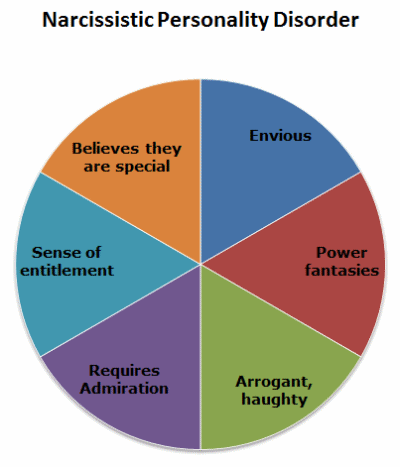Narcissistic Husband?
By: John D. Moore, PhD and Alex DeWoskin, LCSW
Do you wonder if you have a narcissistic husband? If so, you are not alone. Narcissism related questions come up often during one on one relationship counseling with our clients. As a starting point, here are a few questions that you might want to ask yourself in determining if your husband is a narcissist.
Does your man have a way of somehow always making it about him? Does he seem entitled, self-important and superior towards others? At times, does he adopt a grandiose attitude and make claims that seem almost impossible to believe? Does he have a history of lying to you with an inability to show sincere remorse for his actions? Does he come off to you and perhaps others as arrogant and high minded?
If some of these characteristics sound familiar, you may indeed be married to a narcissist. Here at the Couples Counseling Center, we work with many individuals who come to us for guidance because of legitimate concerns over their partner’s actions and behaviors. This is particularly true for spouses who have who suddenly realize that the man they are married to is incapable of showing true love or compassion towards – to anyone.
So how do you know if you have a narcissistic husband? Are there specific characteristics you should be on the lookout for in your man? The answer to these two questions largely depends upon your husband’s psychological makeup, contextualized in the framework of your marriage. In truth, determining rather or not someone is truly a narcissist can be difficult.
You may be wondering why?
What is narcissism?
The first thing you need to know is this – if a person is a true narcissist, they have a very real personality disorder. This disorder is a recognized by the American Psychiatric Association and is published in a book called the Diagnostic and Statistical Manual of Mental Disorders (DSM).
We mentioned this because many people use the term “narcissist” in an almost flippant way – which can have the effect of diluting a rather serious mental health condition that does not get better on its own and does not go away over the course of time.
Narcissistic Husband: 10 Warning Signs
What follows are 10 specific warning signs that your husband may be a narcissist. Bear in mind that these traits and characteristics can resemble other types of personality disorders. Additionally, medical conditions can sometimes cause (or contribute to) seemingly bizarre behaviors. Only a qualified mental health clinician can truly diagnose narcissism.
With all of that out of the way – let’s take a look at 10 common behaviors of narcissists. If you see five or more of these characteristics in your husband, he may qualify as having narcissistic personality disorder (NPD). The traits we mention here have been adapted from the previously mentioned DSM. We are listing these here for the purpose of identifying behaviors but should not be used as a diagnostic tool.
Are you ready? Let’s take a look!
1. Grandiose behavior that pre-dates your marriage
In order to qualify as having a personality disorder, a person must have a history of abnormal behaviors that spans the course of their lifetime. This is important to bear in mind as you read the other 9 personologic traits. The keyword here is lifetime – meaning they have been this way since childhood. You may need to look deeply at his past to determine this characteristic.
2. Self-important behaviors
If your man has NPD, he likely exaggerates his accomplishments, talents and achievements. He may also feel he should be recognized as such. He will hold these beliefs even though there is little or no evidence to support them. An example might be that your man claims he has a genius level IQ.
3. Holds the belief that he is somehow unique or “special”
People with NPD often feel they are somehow special and only understood by others who are “special” in the same way. Using the previously mentioned example, if your man thinks he is a genius, he may claim that you do not understand him – “only people who think at my level truly understand”. This may cause him to be emotionally distant and unavailable.
4. Holds fantasies of power, beauty and success
Here, we are talking about a man who goes beyond mere positive thinking. A person with NPD is preoccupied with fantasies of success, usually wrapped in sub-fantasies of power, brilliance and good looks. An example might be a situation where your husband is an entry level sales representative at a medium sized company yet says things like, “I’m the most powerful salesman on the force and have the ear of the CEO”. These kinds of grandiose claims usually are not backed up by any real facts.
5. Requires major admiration
Does your husband require lots and lots of praise with a focus on his “superior” accomplishments? Does he constantly need to you sing his many praises – to him? Does giving him admiration feel like a full time job? Does he neglect to compliment you as part of the cycle? If so, consider this a major NPD characteristic.
6. Thinks he is owed something
Under this trait, a husband with NPD basically feels entitled to things – even though there is no evidence to support there being awarded. For example, he may feel he is entitled to special treatment or consideration because of who he is or his “unique” talents. The key word here is entitled. You can also swap out the word entitled with “deserves”.
7. Takes advantage of others
This particular characteristic is part and parcel for those who have NPD. If your man takes advantage of others (including you) and has a history of exploiting other people as a way of getting exactly what he wants – consider this one a major NPD warning sign too.
8. Unable to empathize
Husbands with NPD have the universal characteristic of missing an empathy “chip”. In other words, they lack real empathy for another person’s situation or their emotional pain. This is particularly true when the man with NPD inflicts that pain as a result of their selfish behaviors. If your man does these kinds of things, you are likely dealing with someone who is emotionally and psychologically abusive.
9. Over the top envy
Does your man become super jealous of others who have reached actual or perceived success? Does he become visibly angry because he cannot stand someone else is receiving attention? On the flip-side, does he hold the fantasy that others are envious of him? Guess what – this too is a sign of NPD.
10. Supreme arrogance
If your husband has NPD, there is a good chance that he regularly demonstrates supreme arrogance. He may show this arrogance in what he says and how he talks. This arrogance can manifest in a number of ways, including sexually, financially and emotionally. Sadly (for you) this arrogance is beyond their ability to detect, mostly because of that previously mentioned missing “chip” from trait number eight.

Narcissistic Husband: What Can You Do?
Here is the deal – if your husband truly is a narcissist, you are not going to change him. Remember, a person with NPD has a very real personality disorder. The best you can really do is cope with the situation and practice a lot of self-care.
One way of gaining support is by working with a relationship counselor who has experience with helping spouses whose husbands are narcissists. Many narcissistic men are incapable of being in committed relationships and cheat on their spouse/girlfriend because of a need for constant adulation.
If you are wondering if a therapist can “fix” your man, it is important you know the therapeutic process is often long and difficult. Again – this is a personality disorder. By definition, this means it is long term and deeply engrained issue. Research suggests the person with NPD needs to be motivated to engage in therapy – which is a problem from the get go in the context of the characteristics shared here.
Narcissistic Relationship Resources
Many spouses ultimately decide they are unable to remain in a relationship with a narcissist. As a result, they try to break things off or file for divorce. This makes sense when you consider the emotional pain that is often endured as part of the marriage. Leaving, however, is easier said than done for most.

You need to know that narcissists respond very negatively to even the slightest hint of divorce because they consider it a major blow to their egos. This book can help to provide insight that can help soften the difficulties to come.

Obviously, avoiding getting into a relationship with someone who has NPD should be your primary goal. Another resource to consider is the book, Why is it always about you by Hotchkiss.
This particular book explores the 7 deadly sins of narcissism and is appropriate for anyone who is dating a narcissist. Some of the material in the book is even helpful with narcissistic in-laws, coworkers and friends.
Narcissistic Husband Poll
Below we have created a poll for individuals who believe they are in a relationship with a narcissist. The results of the poll are non-scientific and should be used for informational purposes only. Please be sure to make a selection and see how your vote compares to others. Come back later to see how your selection compares against other visitors.
Final Thoughts
If you think you have a narcissistic husband, you really should talk to someone about what you are going through. Because many spouses of narcissists are controlled, isolation is a very real consequence.
Therapy may be a way of sharing your silent pain with a person who cares and understands. You don’t have to go through this painful journey alone. Thanks for visiting Couples Counseling Center. Please Like us on Facebook, Circle us in Google Plus or Pin on Pinterest.



